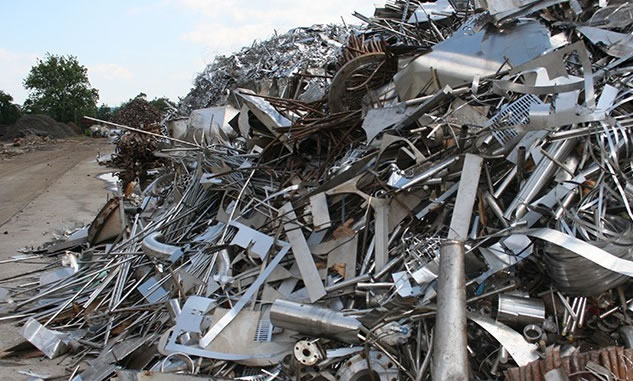

SEP 07, 2022
Steel is a vital resource, and the benefits of recycling steel cannot be ignored. The scrap metal recycling industry reuses more than 69% of the steel it collects each year, making it one of the most significant recycled items in the world. Metal recycling is a critical practice to reduce our carbon footprint and limit the amount of waste dumped in landfills. The benefits of recycling steel are far-reaching and span numerous industries. Scrap metal recycling refers to recovering scrap metals, such as steel and aluminum, from scrap materials and products made from these metals. RCM Recycling is a scrap metal company specializing in recycling all metals, including steel.
You have probably heard that recycling is good for the environment. It's true: recycling keeps materials out of landfills and reduces the need for new raw materials. It also preserves natural resources by keeping products out of oceans and rivers, where they might otherwise end up.
Metals are one of the most valuable resources available in the world. They are used in almost every area of our lives, from cars to computers, bridges to buildings. They can be reused again and again. This saves an enormous amount of natural resources from being mined from the earth and processed by human hands.
Ferrous metal recycling — steel included — is beneficial to the environment because it reduces the need to mine raw materials and use energy to create new metals. Recycling steel uses less fuel than new steel, which means you can save money on energy costs for your business.
Recycling steel involves separating used or scrap metal from other materials and preparing it for reuse. The waste-to-energy facility will purchase your scrap metal from you and pay you a price based on its weight, type, and condition. The facility then melts the scrap metal into liquid form and uses it to make new products.
Most people are familiar with the recycling process for aluminum cans, but many don't realize that recycling steel is just as easy. When you recycle your old steel products, they are taken to a scrap yard, where they're crushed into small pieces and separated into different types of metals. The pieces are then melted down and reformed into new products.
When recycled materials like steel are used in manufacturing, they can be just as strong as products made from virgin materials — or even stronger! Recycled steel is also much cheaper than new materials, making it an attractive option for companies looking to cut costs without sacrificing quality or performance.
The recycling process positively impacts an economy because it creates jobs, generates new revenues, and reduces costs associated with landfills and waste management. The cost savings can also be passed along to consumers through lower prices for goods made from recycled materials.
Recycling steel reduces pollution, helps preserve natural resources, and saves energy. Steel is made from iron ore and coke (a derivative of coal), which can be found worldwide. However, there are limitations on how much iron ore can be mined and processed due to environmental concerns.
The United States is currently in the midst of a steel industry crisis. There are many reasons for this, but one is that we continue to rely on imported steel for our domestic needs. If we continue down this path, we risk depending on foreign sources for our survival as a nation.
Recycling steel instead of mining new ore reduces the need to mine new ore and decreases our reliance on foreign sources of raw materials. The mining process also produces a lot of pollution and wastes resources such as water and coal that could be used elsewhere. It also uses up valuable space on earth that could be used for other purposes if mines did not use it.
The benefits of recycling steel are compelling. From an economic standpoint, the ability to reuse steel means that it doesn't cost quite so much to obtain. Selling recycled steel products keeps the costs associated with purchasing new steel down, which benefits everyone involved with steel production. For the environment, less scrap around means fewer toxins in local sewage systems and rivers. Recycling material that would otherwise be discarded means that it's not going to waste and takes up space where it could be more useful in a different capacity. RCM Recycling will partner with you to recycle your steel and make a difference!